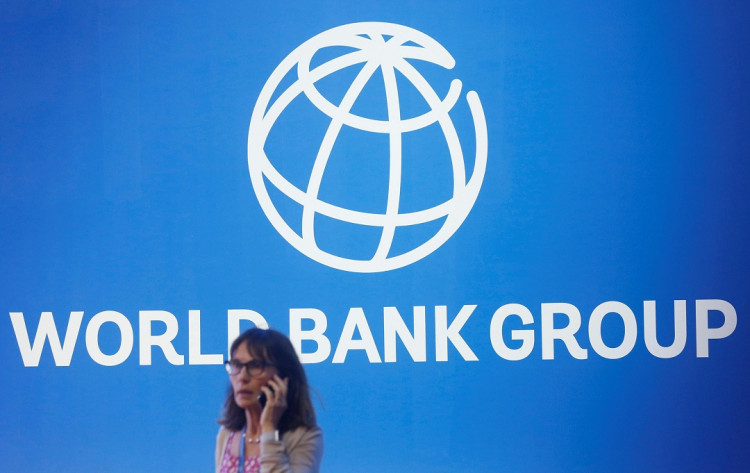Massive government stimulus packages meant to save countries from COVID-19's immense economic destruction run the risk of fueling a new global financial crisis, the World Bank said.
World Bank chief economist Carmen Reinhart warned the pandemic might trigger a global financial disaster and exacerbate already dire economic damage if not handled correctly. She said continuing along the path of global quantitative easing "is not a sustainable one."
She also questioned the wisdom of central banks increasing their already massive exposure in global bond markets. She added the scenario "we're in is not sustainable."
Massive quantitative easing will eventually see many countries confronted by debt crises just as their economic recoveries materialize, according to Reinhart.
"This did not start as a financial crisis, but it is morphing into a major economic crisis with very serious financial consequences," she said. "There's a long road ahead."
She also warned continued fundraising and bond-buying by central bank's isn't sustainable and will likely spark debt crises in many countries. Unprecedented bond-buying programs by central banks in developed and emerging economies have added too much liquidity to markets.
Reinhart said the introduction of fundraising and bond-buying helped drive the first stage of economic recovery, which was well and good. What followed, however, were "frailties" that manifested in the global public-debt space.
"The longer the uncertainty, the longer the pandemic works its way through the global economy, the bigger the balance-sheet damage," Reinhart pointed out.
"This is a war," she said about central banks moving to keep yields low by buying bonds.
"During wars, governments finance their war expenditures however they can, and right now there are dire needs."
Reinhart said about half of poorer countries are either in or approaching "debt distress." She pointed out the "vulnerabilities" for lower-income countries and emerging markets are much greater than for advanced economies.
She said during the Great Recession of 2008, emerging markets were the "bright spot" amid this cataclysm. On the other hand, "that is certainly not happening here. This is truly a global crisis."
Reinhart called this new outcome the "quieter crisis" because banks have given extensions to businesses and households in loan repayments. "When the dust settles, some of those loans are not going to be repaid." She said that would likely have big consequences for bank balance sheets.
Reinhart said China's share in global GDP will increase because of the pandemic, but not in the same way as when it grew by double digits during the 2008 crisis.
She said China is participating in debt relief but "less than fully. Full participation is something we should strive for but have not so far seen.






